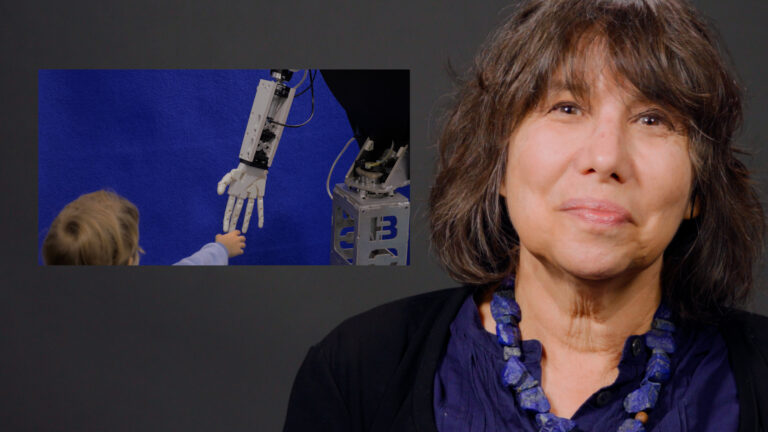Watch as Professor Alison Gopnik from the University of California, Berkeley explains this surprising overlap in just 101 seconds.
Public Relations Officer
August 13, 2024
Alison Gopnik, a professor of psychology at the University of California, Berkeley, studies how children learn, and she also studies artificial intelligence systems. It may sound counterintuitive, but as she explains in this video about her work for UC Berkeley News, there are a lot of parallels between what we’re learning about how babies explore the world and how we can create better AI systems.
“Young children are amazing learners, and they learn in record time and with very little instruction,” Gopnik said. “So the question is: How do they manage to learn so much?”
“Answering that question not only helps us understand children, but also helps us understand the deep, profound philosophical questions about how it is that we all – children, adults, scientists, and even man-made machines – are able to know so much about the world,” she continues.
Gopnik, who recently received the prestigious Rumelhart Prize in Cognitive Science, has studied how children make sense of the world in the face of little evidence.
“I study children because there are no aliens,” says Gopnik, who became a professor at the University of California, Berkeley in 1988. “If you want to study little creatures with big heads and small bodies who are incredibly intelligent and spend a lot of their time putting you into a hypnotic state, you study 3- and 4-year-olds.”
Gopnik’s video is the first in a new Berkeley News series, “101 in 101,” which challenges professors and researchers across campus to summarize the fundamentals of their research in just 101 seconds, like an introductory course.
Enjoy this shortest lecture ever.

